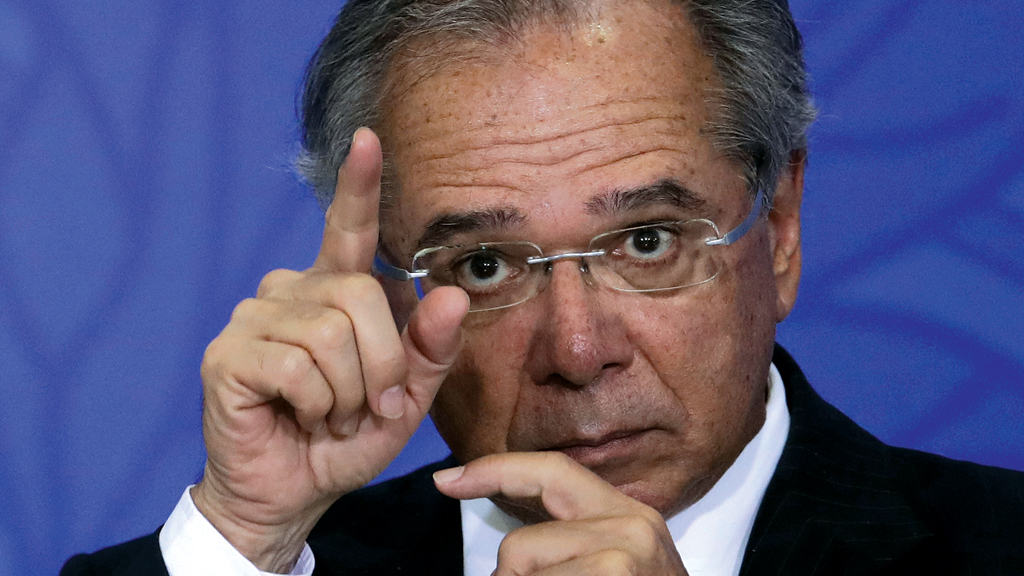RIO DE JANEIRO, BRAZIL – Brazilian financial markets ended a week of panic over the juggling act of Jair Bolsonaro’s government to break the spending ceiling, which has led to the resignation of high-ranking officials of the Ministry of Economy.
The São Paulo stock market index Ibovespa, already down 2.75% on Thursday, closed down 7.3% for the week and 1.34% on Friday, recovering slightly after falling 4.5% during the session amid growing uncertainty over the fiscal direction of Latin America’s largest economy.
Read also: Check out our coverage on Brazil
The turmoil was also felt in the foreign exchange market, where the U.S. dollar hit its highest level in several months this week at R$5.75, although it recovered on Friday to close at R$5.62 in the commercial exchange rate.

In an attempt to alleviate the bad mood in the markets, President Bolsonaro assured that his government would stick to its commitment to fiscal responsibility and would not engage in “adventures” that “endanger” the country’s economy, which has been plagued by high unemployment and double-digit inflation.
MORE SOCIAL SPENDING IN AN ELECTION YEAR
The origin of this crisis of confidence lies in the Bolsonaro government’s plans to finance the expansion of a social aid program that it intends to promote throught all of 2022, the year in which he is seeking re-election.
With no room to maneuver in the budget, gross domestic product (GDP) badly hit by the coronavirus, and recovery increasingly unlikely, Economy Minister Paulo Guedes and his team have agreed to change the rules on the spending cap to increase it in practice.
Guedes assured Friday that the measure is “well thought out” and does not violate the current fiscal rule contained in the constitution.
The spending cap, which limits increases in public spending to the previous year’s inflation rate, has been part of Brazil’s constitution since 2017 and was promoted by former President Michel Temer, who pursued a liberal agenda in the little more than two years he was in office.
As the 2022 election campaign approaches and his popularity sinks in the heat of the health and economic crisis, President Bolsonaro has distanced himself from the postulates of fiscal responsibility by proposing a sharp increase in social spending in 2022.
In this context, the government announced Wednesday its plans to increase the value of aid to the poorest by an average of 20% to at least R$400 (about $70) and increase the number of beneficiaries from the current 14.7 million families to 17 million.
CASCADE OF RESIGNATIONS
Amid controversy over the spending cap, Special Secretary of the Ministry of Finance and Budget Bruno Funchal, the Secretary of the National Treasury Jeferson Bittencourt, and the two deputy secretaries resigned Thursday for “personal reasons.”
At the same time, the Chamber of Deputies took the first step to support the government’s fiscal plan by approving in committee the modification of the spending ceiling and, in addition, the postponement for 10 years of the payment of part of the federal government’s judicially ordered debt falling due in 2022, which creates more funds available for other expenses.
“The macroeconomic impact is enormous, as the market assumes that the government is unable to control its public finances,” Juliana Damasceno, a researcher in applied economics at the Getulio Vargas Foundation, told Efe.
Damasceno believes that extending social assistance in this way only for 2022 “serves an electoral interest,” otherwise, the government would have launched a “long-term program,” which, on the other hand, would have been necessary after the enormous devastation of Covid-19.
The secretary of oil, gas, and biofuels at the Ministry of Mines and Energy, José Mauro Coelho, had resigned the previous day, hours after Bolsonaro announced he would introduce yet another (unspecified) subsidy for the independent truck drivers affected by the diesel fuel price increase.

